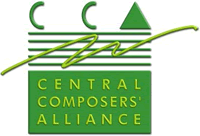Laudate Dominum [complete cantata]
Instrumentation Soprano solo, SSATBB, 2 Fl, 2Ob, 2Cl [ad lib in movements 1 & 3], 2 Bn; 2Tr & 2 Hn [natural harmonics]; timps & tenor drum; Strings. Total duration 18:00 |
Other Information Cantata for solo soprano, choir & orchestra. The first movement of Laudate Dominum was written in 1996 as a commission for Dame Emma Kirkby, Derby Choral Union and an authentic Classical orchestra at A=430 with funds made available by East Midlands’ Arts. The Alleluia (now movement 3) was added for Emma Kirkby’s second concert with DCU in 1999. Later in 1999, the earlier movement was performed by the Leicester Bach Choir with Alison Smart in a new accompaniment for organ. Leicester Bach Choir, again conducted by Giles Turner, performed the entire work at that time on March 23rd 2002 as part of the Leicestershire Composers´ concert accompanied by a modern orchestra (with soprano Kate Tansey) rather than for the authentic Classical orchestra for which it is written. It was always intended that these two movements should have an aria inserted between them to form a complete cantata with its first performance on 5th April 2003. Each of the three movements is linked by the theme for the ‘Angel Aria’ which is central to the first movement. Dedicated to Dame Emma Kirkby and Derby Choral Union
Laudate Dominum omnes gentes,laudate eum omnes populi. Quoniam confirmata est super nos misericordia ejus et veritas Domini manet in aeternam. [Psalm 117] Lobet den Herrn, alle Heiden; preiset ihn, all Völker! Denn seine Gnade und Wahrheit waltet über uns in Ewigkeit. O praise the Lord all ye nations: praise him all ye people. For him merciful kindness is great toward us: and the truth of the Lord endureth for ever. Louez l’Éternal, vous toutes les nations, célébrez-le, vous tous les peoples! Car sa bonté pour nous est grande, et sa fidélité dure à toujours. [N.B. to emphasise the universality of the text ALL four languages are used.] Duration 9:30
Laudate Dominum de caelis: laudate eum in excelsis. Laudate eum omnes angeli eius: laudate eum omnes exercitus eius. Laudate eum sol et luna: laudate omnes stellae luminis. Laudate nomen Domini [from: Psalm 148] TRANSLATION: O praise the Lord of heaven: praise him in the height. Praise him all ye angels of his: praise him all his host. Praise him sun and moon: praise him all ye stars and light. Praise the name of the Lord. [from: Psalm 148] Duration 4:00
Alleluia! Duration 3:50 Note from the composer on the genesis and development of the work: “I was pleased to be asked by Derby Choral Union to choose a patron for the choir when I started my tenure with them in 1992. Sir Charles Groves [the Patron at the time] had recently died. I wanted, instead of a famous conductor, one of the world’s most distinctive voices as Patron and was delighted when she accepted. It was, therefore, a great honour to be asked to compose a work for my choir at the time and its Patron. I was very aware of the history of the choir [which dated back to 1793] so I thought it would be appropriate to write in Classical pitch [A=430] to accommodate Emma and reflect the history of the choir too. This meant that I had re-learn some of my composing skills to write for the original instruments of the late 18th century. I had a great deal of help from some of the players in the orchestra, notably the brilliant and world-renowned pair of brass players: Tony Halstead and David Blackadder on natural horn and natural trumpet respectively. I also greatly appreciated the superb advice, bowing skills and orchestral nous of Diane Terry who led her orchestra [Midland Baroque] for each of the three Emma concerts. The commission, with funds made available from East Midlands’ Arts, allowed me to compose freely for what I considered the choir’s and Emma Kirkby’s strengths. The SSATBB scoring reflects the choir’s numbers although the texture was increased to add sonority to the last movement. From the outset it was clear that the composition could grow in size with the choir in a series of concerts planned with Dame Emma [as she has deservedly become] and this presented me with a huge challenge. I needed to compose pieces that would, eventually, form a complete cantata but also allow each section to be independent as required. This also allowed me as composer/conductor to experiment over a long period to such a degree that, when I decided that the orchestration of the virtuoso aria needed clarinets, I revisited the entire work and added clarinets to the texture. This has, strangely, made Laudate Dominum much more useable for performers who can choose the movements to suit concert circumstances. In fact, even the ‘Angel’ aria in the first movement can be (and has been used) as a separate anthem in church services.”
|


![David Fisher - Laudate Dominum [complete cantata]](../images/items/824.jpg)
![David Fisher - Laudate Dominum [complete cantata]](../images/items/8242.jpg)
![David Fisher - Laudate Dominum [complete cantata]](../images/items/8243.jpg)